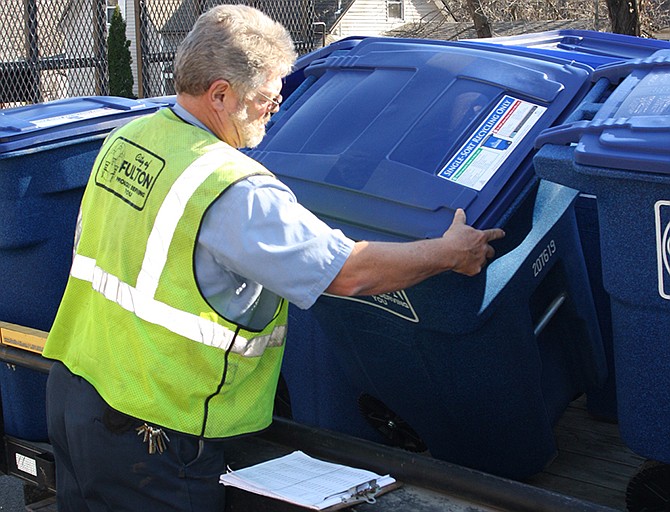Robert and Adlynn Harte of Leawood, Kan., told Missouri senators Wednesday they've spent $25,000 trying to learn why Johnson County, Kan., deputies raided their home nearly two years ago.
They know that part of that answer is: "They received a tip from the Missouri Highway Patrol," Mrs. Harte told the Senate's Progress and Development Committee.
The Hartes came to Jefferson City to urge Missouri lawmakers to change state law - so officers can't track people's vehicle and license plate information without having a valid reason to suspect those people of criminal activity.
She told how sheriff's deputies held the family, mostly at gunpoint, for 2½ hours" on April 20, 2012, while they searched the home for "narcotics."
During the search, one of the officers eventually told the family that marijuana seeds and stems had been found on their property several times in the previous weeks.
But none of it was found at the Hartes' home.
Sen. Jason Holsman, D-Kansas City, sponsors the bill that would require Missouri law officers to gather and keep evidence from a surveillance operation only when there's evidence that a person is involved in criminal activity. It also would require a search warrant before officers could go through someone's trash or garbage - even when it's been placed on the curb to be picked up.
The Hartes testified the items reportedly found on their property had been found in the trash - and that the suspicious material was tea leaves.
The tip from Missouri to Kansas was based on a Highway Patrol surveillance of a "Green Circle" store that sells hydroponics equipment.
Robert Harte told the senators he had taken his two young children to the hydroponics store on Aug. 9, 2011, after his son - then 11 - had expressed interest in trying to grow plants without using soil.
"I describe it as a fun father-son project," he said. "You got to use power tools. There was some math involved in figuring out the angles and things like that.
"It was just a really neat thing."
The Hartes have been married 19 years, after meeting while both worked for the Central Intelligence Agency in Washington, D.C.
Robert Harte was raised in the Kansas City area, and they moved back so their children could be raised in a more quiet environment.
"We certainly support law enforcement trying to do their job," Adlynn Harte testified, "but there has to be some balance and homework that's done, so this (kind of thing) doesn't happen to anybody."
Holsman explained: "They were collecting the license plate and note data on everybody who went in and out.
"If you went into that store, you were suspicious of having committed a crime, and they were collecting your data."
Holsman said the patrol's actions were no different than if they had taken personal information about people who went in and out of a gun store.
No one from the patrol testified at Wednesday's hearing, although several other law enforcement groups opposed Holsman's bill.
"We feel horrible about what happened in Kansas, but feel it's a Kansas issue," said Missouri Sheriffs Association Director Mick Covington.
"This bill, as it's written, is going to have a chilling effect on law enforcement (because) we operate on tips on a daily basis."
Jason Lamb, director of Missouri's Office of Prosecution Services, said state law already has the safeguards needed to protect Missourians from problems with law enforcement mistakes in getting search warrants - including the ability to appeal through the courts.
The Missouri Police Chiefs and the Fraternal Order of Police also objected to Holsman's bill in its current form.

